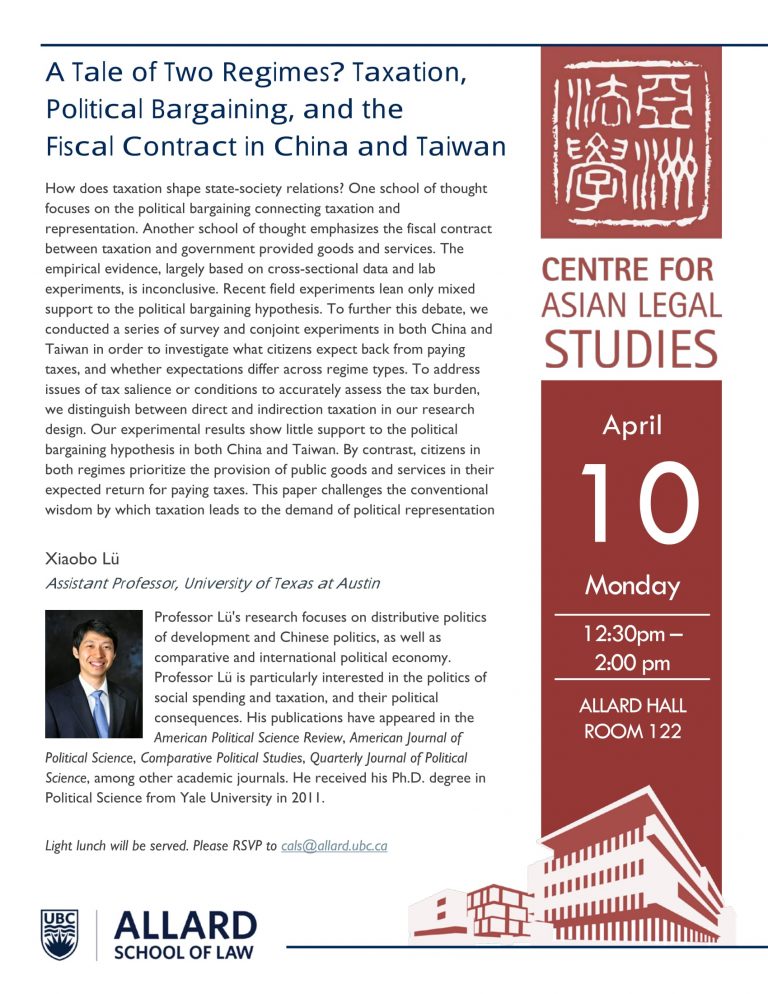Speaker: Xiaobo Lü (Assistant Professor, University of Texas at Austin)
Location: Allard Hall, Room 122
How does taxation shape state-society relations? One school of thought focuses on the political bargaining connecting taxation and representation. Another school of thought emphasizes the fiscal contract between taxation and government provided goods and services. The empirical evidence, largely based on cross-sectional data and lab experiments, is inconclusive. Recent field experiments lean only mixed support to the political bargaining hypothesis. To further this debate, we conducted a series of survey and conjoint experiments in both China and Taiwan in order to investigate what citizens expect back from paying taxes, and whether expectations differ across regime types. To address issues of tax salience or conditions to accurately assess the tax burden, we distinguish between direct and indirection taxation in our research design. Our experimental results show little support to the political bargaining hypothesis in both China and Taiwan. By contrast, citizens in both regimes prioritize the provision of public goods and services in their expected return for paying taxes. This paper challenges the conventional wisdom by which taxation leads to the demand of political representation.
About the Speaker
Professor Lü’s research focuses on distributive politics of development and Chinese politics, as well as comparative and international political economy. Professor Lü is particularly interested in the politics of social spending and taxation, and their political consequences. His publications have appeared in the American Political Science Review, American Journal of Political Science, Comparative Political Studies, Quarterly Journal of Political Science, among other academic journals. He received his Ph.D. degree in Political Science from Yale University in 2011.
Light lunch will be served. Please RSVP to cals@allard.ubc.ca
